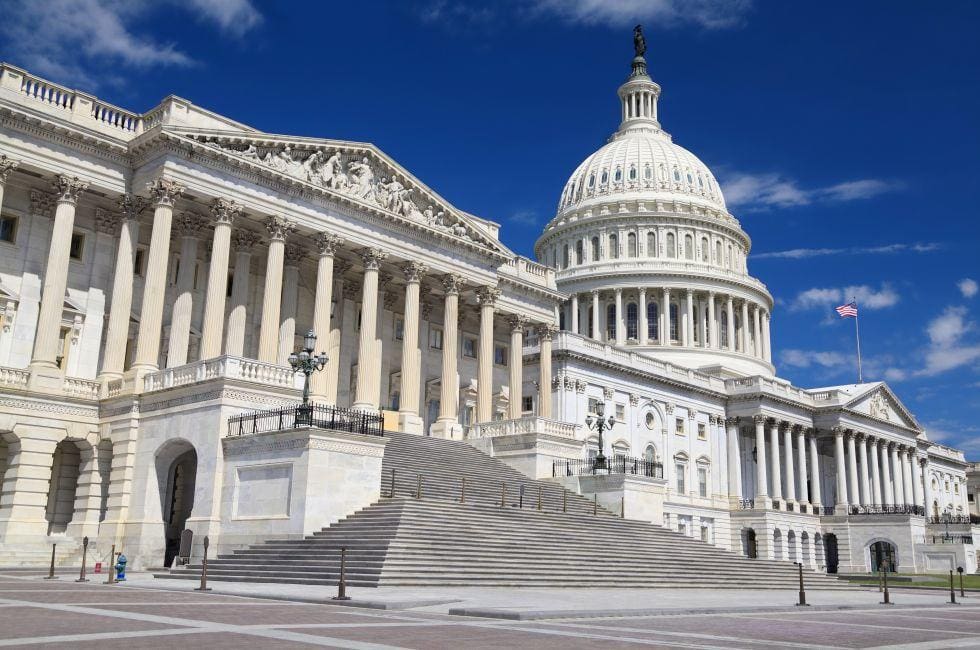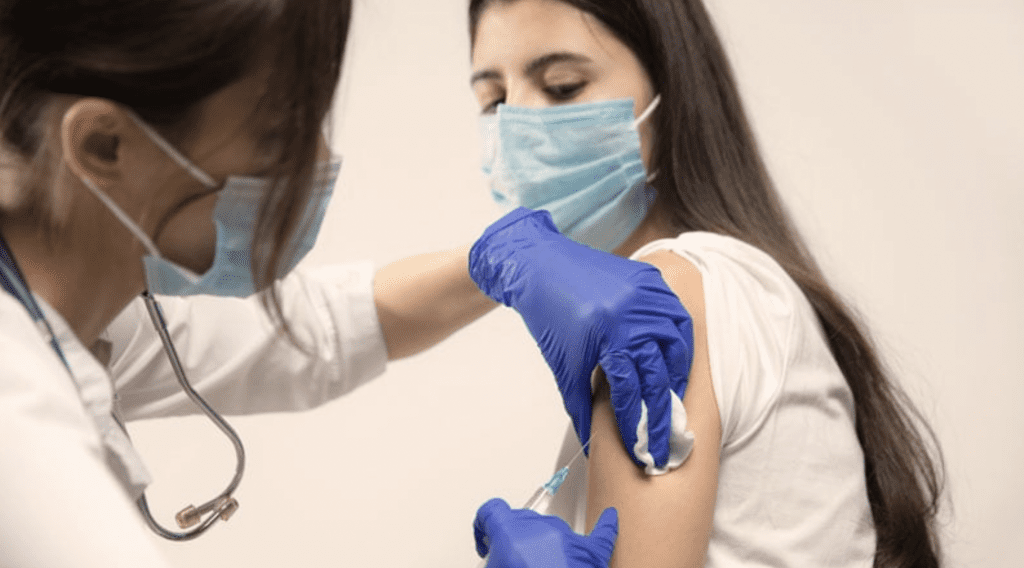

Why Are People’s Risk Perceptions So Skewed?
Yesterday I noted that, 18 months after the start of the pandemic, a sizeable chunk of Americans still dramatically overestimate the risks of COVID. In a recent poll, more than one third said the risk of being hospitalised if you’re not vaccinated is at least 50%.
Of course, you’d expect some people to get the answer wrong just because we’re dealing with a small quantity, and there’s always going to be some degree of overestimation. But many people were off by a factor more than 10. What accounts for this?
Interestingly, Democrat voters’ guesses were much higher than Republican voters’ – about twice as many Democrats said the risk of being hospitalised if you’re not vaccinated is at least 50%. This suggests a role for ideology.
Throughout the pandemic, the ‘Democrat position’ has been to support restrictions and mandates, whereas the ‘Republican position’ has been to oppose such measures. This is clearly visible in a plot of U.S. states by average stringency index. Almost all the ‘red’ states are on the left-hand side, while almost all the ‘blue’ states are on the right.
Given that partisans (on all sides) like to avoid cognitive dissonance, they tend to adopt beliefs that are consistent with their party’s platform. Since Democrat politicians have been busy imposing all sorts of restrictions and mandates, Democrat voters have adopted beliefs that imply those measures were justified.
Most survey respondents don’t know numbers like ‘the risk of hospitalisation for people who aren’t vaccinated’ off the top of their head. Instead, they probably make a guess based on all the relevant information they can recall.
Democrat voters, who’ve spent the pandemic consuming media like MSNBC, CNN and NPR, will recall numerous incidents of pundits saying that COVID is extremely dangerous, and we have to do whatever we can to stop the spread.
They will also recall that they were locked down for months, that their kids’ schools were closed, and that they had to wear a mask whenever they went to the grocery store.
Putting all this information together, they will tend to assume that the risk of being hospitalised from COVID is extremely high. ‘Why else,’ they might ask, ‘would there have been so many restrictions?’
Note: Republicans also overestimated the risk of being hospitalised from COVID, albeit to a lesser extent than Democrats. This indicates that people’s skewed risk perceptions cannot be blamed solely on the content of left-wing media (or the policies implemented in ‘blue’ states).
The psychological quirk that may account for people’s skewed risk perceptions has a name in psychology: the availability heuristic. As Steven Pinker notes, “people estimate the probability of an event or the frequency of a kind of thing by the ease with which instances come to mind”.
Because plane crashes always make the news, people tend to overestimate the risks of air travel. And they may overestimate the risks of COVID for the same reason.
Since the start of the pandemic, we’ve been treated to morbid ‘daily death numbers’ – but for only one cause of death. Perhaps if these figures had been reported for all causes of death, people’s risk perceptions would be slightly less skewed. (Or perhaps they’d just be terrified of everything…)
During a pandemic, we obviously do want people to take precautions; we don’t want them nonchalantly walking into a care home when they have a high fever and a nasty cough. Yet – contrary to what some in government seem to believe – we don’t want people to be utterly terrified either.
There’s been so much attention on people claiming COVID is “just the flu” that the media has largely ignored the other end of the spectrum: people who believe COVID is the bubonic plague!
We can agree it’s bad if people underestimate the risks. But it’s also bad if they overestimate the risks. We want them to have the right risk perceptions. That way, they can make informed decisions.








